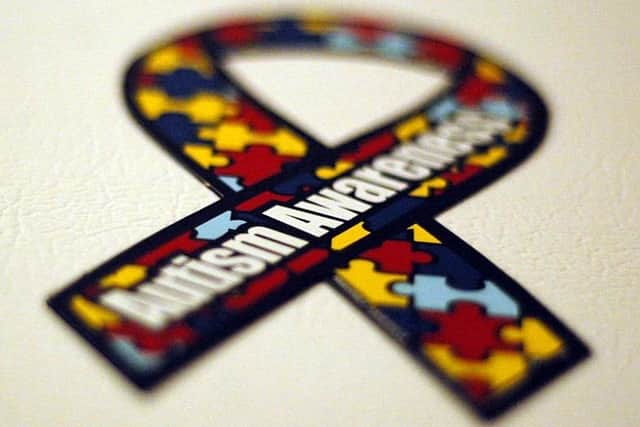Children in Northern Ireland are diagnosed with autism at more than double the rate of those in Great Britain, MPs are told
and live on Freeview channel 276
The figures were cited by Mark Baker, head of the Controlled Schools’ Support Council (CSSC), as part of a call for more funding for the education system.
Mr Baker was one of three witnesses speaking on the subject before the Northern Ireland Affairs Committee.
Advertisement
Hide AdAdvertisement
Hide AdDuring the course of his appeal for additional money, Mr Baker told the MPs on the committee: "If you compare a child in Northern Ireland with a child in Scotland, £2,000 extra per year, we predict, this year will be spent in Scotland to Northern Ireland.
"Over a child's life that's £30,000 in education.
"It's vital there's parity of investment in our young people... parity that addressses the need."
‘NORTHERN IRELAND IS VERY DIFFERENT PLACE TO GB’
He went on to talk about the different levels of demand that exist in Northern Ireland, compared with Great Britain.


"Northern Ireland is a fundamentally different jurisdiction to England," he said.
Advertisement
Hide AdAdvertisement
Hide Ad"18% of the population are of school age [versus] 15% in England.
"If it was the same, there'd be two-and-a-half million more children in schools in England."
In particular he pointed to a big disparity in SEN (special educational needs) schooling.
"One in 20 children in Northern Ireland of school age has a diagnosis of autism," he said.
"[It is] one in 57 in the rest of the UK.
Advertisement
Hide AdAdvertisement
Hide Ad"The need in Northern Ireland is significantly different. And, I'm stating the obvious, Northern Ireland is a very different place to the other jurisdictions."
The figures he cited would mean that some 5% of Northern Irish children are diagnosed as having autism, as compared with 1.8% of children in the rest of the UK.
CSSC helps run Northern Ireland's "controlled schools".
About half of all NI schools are "controlled" (550 or so), and their pupil population is 59% Protestant, 11% Catholic, and 30% ‘other’.
CSSC leader Mr Baker went on to tell the committee: "I can't stress how unequal it is and I do have a concern that our children and our young people are being used as pawns at the moment.
Advertisement
Hide AdAdvertisement
Hide Ad"And I also believe, and am quite content to say, we're in a situation where I don't think there's a full acceptance that children and yound people in Northern Ireland are being underinvested in and that's going to be damaging for the future of Northern Ireland.
"And they're decisions that I'd say are being made by the Secretary of State at the moment."
In the absence of a devolved assembly, the Tory government (of which the Secretary of State Chris Heaton-Harris is a part) is setting Northern Ireland's annual budget.
‘SCHOOLS ARE CRUMBLING’
Also speaking was Liam McGuckain, president of the Northern Irish wing of the National Association of Head Teachers.
Advertisement
Hide AdAdvertisement
Hide AdHe said "the school estate is crumbling... and the SEN sector has not the capacity for the children".
Mr McGuckain said the crisis in the NHS is also bleeding into nurseries, saying that because "children are not being seen by health visitors" they are "coming into nursery school and [nursery staff] are actually having to pick that up and diagnose things".
Meanwhile Sara Long, CEO of the Education Authority, said bluntly that: "At this point, we're projecting that weneed £200m to stand still in this year."
If a pay rise for staff was included, "that would make it nearer £400m".
Advertisement
Hide AdAdvertisement
Hide AdThe NI Affairs Committee is probing the state of public services in general.
It is made up of five Tory MPs, two Labour, two DUP, one SDLP, and one Alliance.